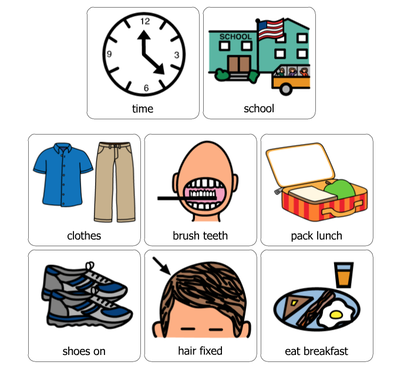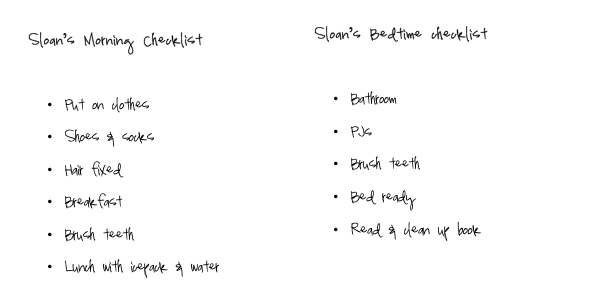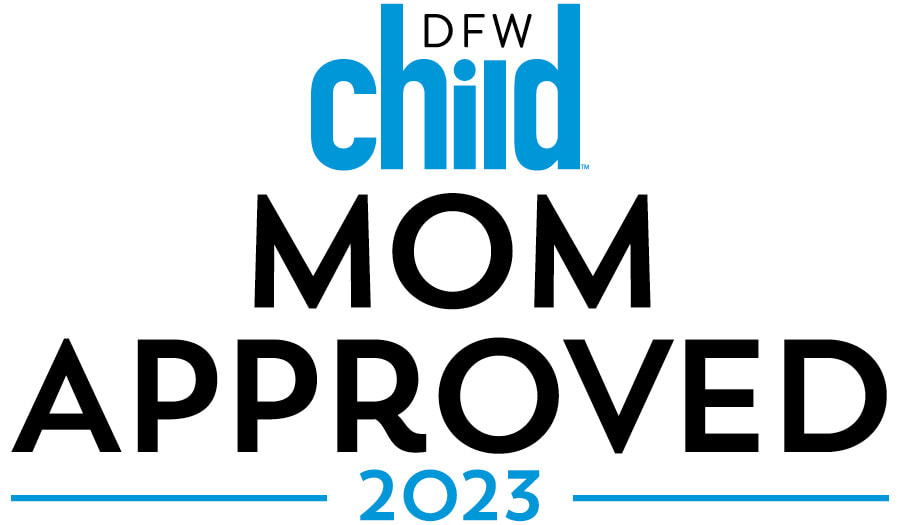Speech Happens
|
As summer is winding down, there are many emotions leading up to the first day of school--excitement, anxiety, anticipation, nervousness, worry. As parents, we want to prepare our children as much as possible and set them up for success. In preparation for back to school, we have a few ways to help. Visual ListsI love a good list. My daughter quickly caught on to this and even one day as a toddler asked if I could make her a list. She knows that Mommy likes to organize things and that it brings me joy. Lists don't have to all look the same. For my own children, I make a variety of visual supports, including visual lists. Why LISTS? When I heard myself giving the same verbal reminders each morning before school for my daughter Sloan the clinician in me cringed. I knew that there was a way to support both learning the sequence of the morning routine, while encouraging independence. I knew this would give us both a calmer morning leading up to school drop off, so I quickly made a visual list: I knew that even with being a strong early reader, a visual list first thing in the morning was a smart choice to reduce the cognitive load. I did transition to a written list within the school year based on her level of reading. With the tasks in the list, I gave her some control over the order, which is what differentiates a list compared to a schedule. For every child and household, the tasks in a visual list may be a little different. A visual list can be hand-drawn, you can use google images, or use text based on your child. How Was School Today?When your child hops in your car or arrives home after school, often our first question is, "How was school today?". More often than not, the responses are lacking. For many children, this is an abstract question or recalling experiences that tie to this question can be hard. Breaking down this big question to more concrete prompts/questions gives children more opportunity to respond with more "complete" answers. It is important to point out that for some children, the moment that they get in the car or arrive home may not be the best time to debrief the day. A better time might be over a snack or once they have had "down" time after school. Below are some examples of questions for both preschool and elementary aged children. Choose a few questions to help facilitate conversations about school. When it comes to concrete questions specific to what kids are learning, it is much easier when paired with information from the teacher (e.g., If your child's class is working on patterns in math, ask "What objects did you use to make patterns with today?"). PRESCHOOL
ELEMENTARY SCHOOL
0 Comments
Your comment will be posted after it is approved.
Leave a Reply. |
AuthorJamie Cato is the founder of Holland Speech & Consulting and the mommy of two incredible kids, Sloan (5) and Jude (2), who unknowingly become the subject of many stories when it comes to the development of language, play, and emotional regulation. Archives
October 2019
Categories |



 RSS Feed
RSS Feed
